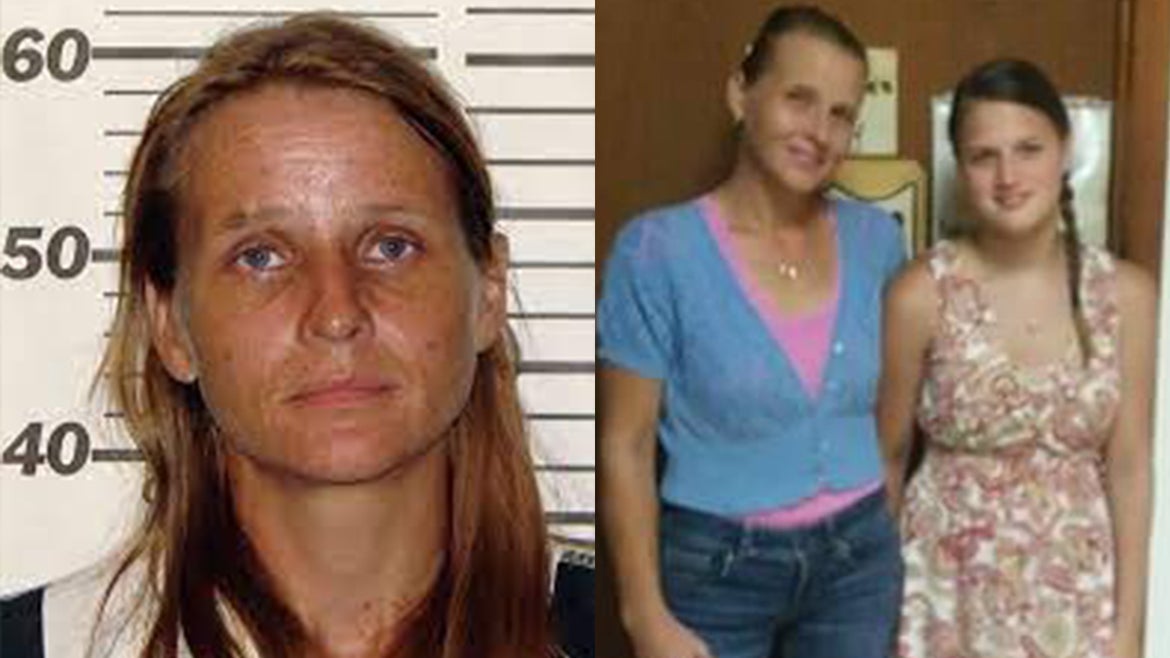According to court documents, Rebecca Ruud gave personal belongings in an unsealed box to her husband, Robert Peat, Jr, not realizing she had put a digital recorder with an allegedly incriminating conversation between her and her lawyers in it.
A Missouri Supreme Court has ruled in favor of the prosecutors and is allowing a recording to be used as key evidence in the trial against Rebecca Ruud, who is charged with the murder of her teenage autistic daughter, Savannah Leckie, in July 2017.
The recording allegedly features a conversation that Ruud had with her lawyer, in which she allegedly admits to some of the crimes that she was being accused of.
Ruud is facing charges of first-degree murder, child abuse, felony murder, tampering with evidence and abandonment of a corpse, according to the Springfield News-Leader.
Attorneys for Ruud argued attorney-client privilege in order to keep the recording out of evidence; however, in a unanimous ruling, Missouri Supreme Court Judge W. Brent Powell said that privilege was waived once Ruud voluntarily disclosed the recording to a third party, reversing a ruling by Greene County Judge Holden, who was presiding over the case and said the recording was privileged, the news outlet reported.
According to the Supreme Court ruling, Ruud’s disclosure was voluntary. The ruling stated that “no evidence in the record suggests, nor does Ruud assert, that she was forced or coerced into handing over the box with the recording to Peat,” the news outlet reported.
Ozark County Prosecuting Attorney John Garrabrant said on Wednesday he was pleased.
“It’s a major piece of evidence and we are very pleased the Supreme Court found that the privilege had been waived, which is what we had felt all along but had to wait a long time before we finally got an answer,”
Garrabrant said he had not yet listened to the recording. He said in part, "So I don’t know what content of the recording is, but I’m interested in listening to what’s on there and how that might affect how the state is going to present its evidence in this case.”
He added that in the next couple of weeks both parties will meet for a pre-trial conference and then set the date for a trial.
The digital recording was made in 2017 before Rudd was even indicted or charged with a crime, according to the Springfield News-Leader.
According to court documents, Ruud gave personal belongings in an unsealed box to her husband, Robert Peat, Jr., for a possible truck-driving trip. She didn’t realize she had put a digital recorder with an incriminating conversation between her and her lawyers in the box as well, the Springfield News-Leader reported.
Peat, who is also charged in connection to the murder of Leckie, reportedly did not look in the box for over a year, but turned it all over to the Ozark County Sheriff's Office after listening to it, the Springfield News-Leader reported.
Savannah's remains were found in a burn pit on Rudd's property, months after her daughter had moved back with her biological mother.
Rudd had reported a fire on July 18 on the property located in Theodosia, a small village near the Missouri and Arkansas border. Rudd allegedly told fire officials that she was burned while trying to save her daughter from the fire, but refused to let them talk to Savannah, the Associated Press previously reported.
On July 20, two days later, Ruud reported that Savannah had gone missing, investigators said. She later gave differing accounts of how she was injured but claimed Savannah ran away because she blamed herself for starting the fire, the news outlet reported.
Once officials searched the property they found human teeth, a meat grinder, a knife, and 26 bottles of lye, a substance that can be used to accelerate the breakdown of bodily tissue, according to court documents. Human bone fragments were found on Aug. 4 in a field near Rudd’s home, the AP reported.
Forensic analysis later identified the remains as Savannah’s, according to the sheriff, the news outlet reported.
Ruud told investigators she had given up her biological daughter for adoption when Savannah was a baby and that the girl spent most of her life in Minnesota. Savannah was described as having high-functioning autism, according to an affidavit, the AP reported.
Savannah’s adopted mother, Tamile Leckie-Montague, had asked Rudd to take Savannah because the teen could not get along with her fiancé, Cary Steeves. Rudd agreed and was given power of attorney, according to the affidavit, the news outlet reported.
While Savannah was living with her biological mother, Rudd’s ex-boyfriend Buddy Smart told investigators he had seen her discipline Savannah by allegedly forcing her to crawl through a hog pen and making her bathe in a pond. Ruud acknowledged that was true and told investigators that when Savannah cut her arm “in a suicidal gesture,” she forced the girl to scrub the wound daily with alcohol and salt as punishment. the affidavit stated, according to a previously reported story in the Associated Press.
Steeves told a local news station that Savannah “needed a lot of one-on-one focus and the farm seemed like a really good place for her at the moment.” He told another news outlet that the last time Savannah and her adopted mother spoke was on her 16th birthday, June 3. He said there was no indication anything was wrong, “nothing like big, red flags,” he said, the AP reported.
Attorneys for Rudd and Peat entered pleas of not guilty for them in separate appearances in the Ozark County Court, according to a previously reported story in KARE 11News.
Savannah's adopted family was mourning her loss.
Both Ruud and Peat could face life in prison for the murder of Leckie if convicted, a report said.
Related Stories






